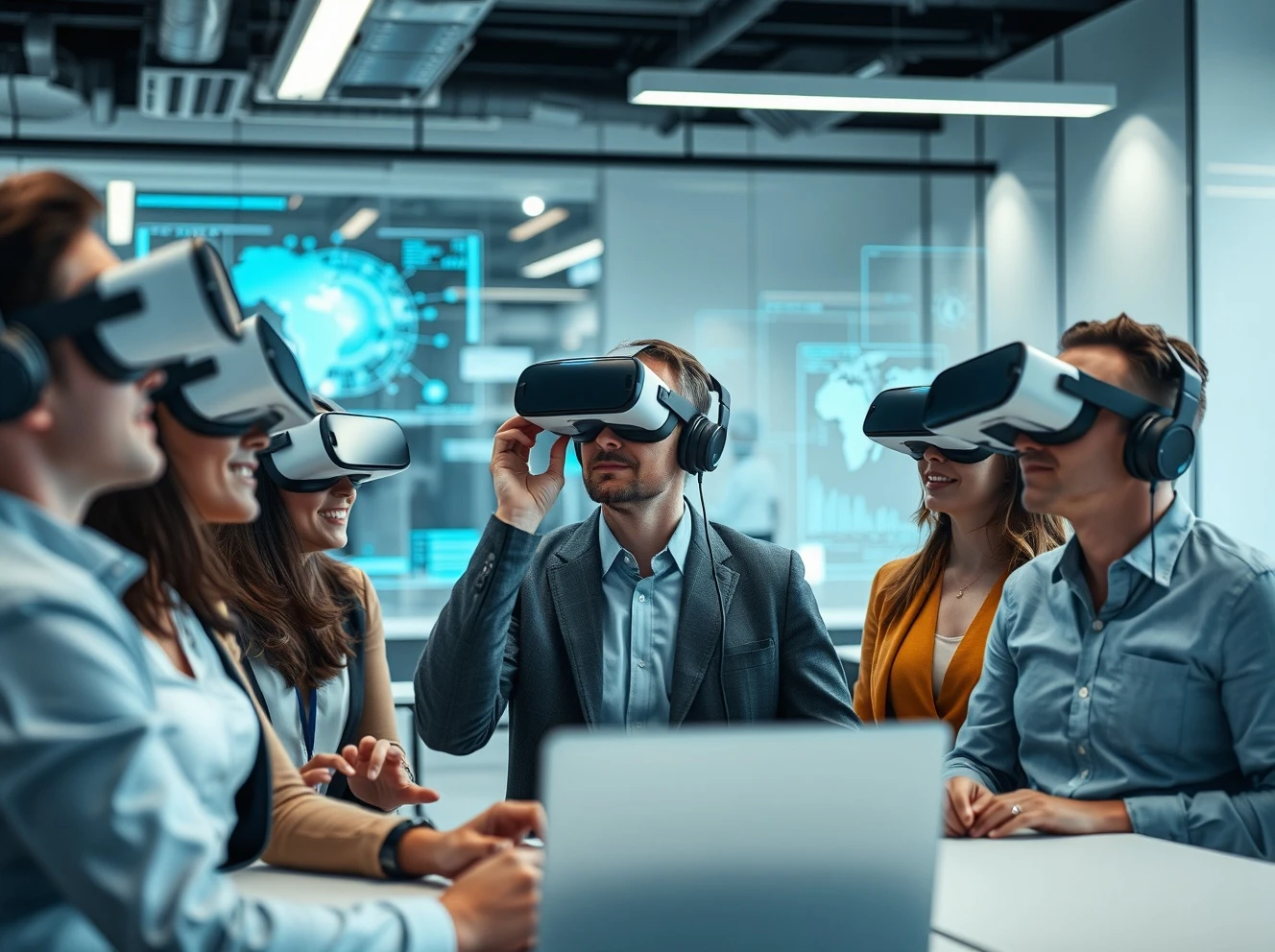London businesses face an unprecedented skills crisis that threatens economic growth and competitiveness. However, innovative VR-powered training solutions are now transforming workforce development across the capital. This technology addresses critical gaps in traditional vocational education while delivering measurable results for employers and employees alike.
London’s Growing Skills Challenge Demands VR-Powered Training Solutions
London confronts a severe digital skills shortage that impacts multiple industries. Recent studies reveal over 380,000 UK jobs risk disruption due to skills gaps. Consequently, London firms urgently need advanced digital capabilities. Traditional training methods struggle with several limitations:
- High costs of equipment and facilities
- Safety concerns in hazardous environments
- Limited access to quality training resources
- Time constraints for both trainers and learners
How VR-Powered Training Transforms Workforce Development
Lincreation Ltd, founded by entrepreneur Wei Guo, leads the VR-powered training revolution. The company creates immersive simulations that bridge theory and practice effectively. Trainees gain hands-on experience without real-world risks. Moreover, they can repeat exercises until achieving mastery. This approach significantly reduces training accidents and equipment damage. Additionally, organizations standardize training across multiple locations seamlessly.
Measurable Benefits of VR-Powered Training Implementation
Research consistently demonstrates VR-powered training advantages. Studies show improved engagement and knowledge retention among participants. Furthermore, organizations report faster skill acquisition and reduced operational downtime. Key benefits include:
- Faster mastery of complex machinery
- Reduced error rates in actual operations
- Increased confidence among trainees
- Cost-effective scaling across organizations
VR-Powered Training Promotes Inclusion and Accessibility
This innovative approach breaks down traditional barriers to vocational education. Learners overcome geographic and financial limitations through VR-powered training. Consequently, more individuals access technical career opportunities. This inclusivity helps address London’s persistent skills shortage effectively. Moreover, companies diversify their workforce while maintaining high skill standards.
Future Outlook for VR-Powered Training in London
Lincreation aims to democratize vocational education globally through VR-powered training. The technology continues evolving to meet changing industry demands. As London’s economy transforms, immersive training solutions become increasingly essential. Businesses adopting VR-powered training gain competitive advantages in several areas:
- Reduced training costs and infrastructure requirements
- Faster workforce preparation for emerging technologies
- Improved safety records and risk management
- Enhanced employee retention through engaging development
Frequently Asked Questions
What industries benefit most from VR-powered training?
Advanced manufacturing, engineering, healthcare, and maintenance sectors show particularly strong results. These industries require complex practical skills that VR simulations effectively teach.
How does VR-powered training reduce costs for businesses?
It eliminates equipment wear-and-tear, reduces instructor time, and minimizes operational disruptions. Companies also save on facility maintenance and safety compliance costs.
Can VR-powered training replace traditional methods completely?
While not replacing all traditional methods, VR complements and enhances existing training programs. It works best for practical skill development before hands-on experience.
What technical requirements does VR-powered training need?
Organizations need VR headsets, compatible software, and adequate space. However, requirements continue decreasing as technology becomes more accessible and affordable.
How quickly can employees become proficient through VR training?
Most trainees show significant skill improvement within weeks rather than months. The immersive nature accelerates learning compared to conventional methods.
Is VR-powered training suitable for all age groups?
Yes, modern VR systems accommodate various age groups and experience levels. Interface designs continue improving for universal accessibility and ease of use.








